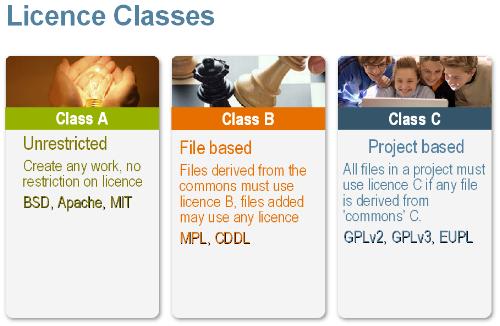I attended Kable’s “Open Source in the Public Sector” 2009 conference and captured and published my notes at my original Sun now Oracle blog, the hyperlinks are listed below. I have reproduced and edited the articles here. This is backdated to the date of occurrence. The main changes are to repair some lost hyperlinks i.e. those that disappeared when Oracle acquired Sun Microsystems. Interestingly Liam Maxwell, who became the Deputy CIO for the UK Government spoke on Government and procurement but I didn’t consider his points worth recording. Shame on me. DFL 25 Jan 2014
Another intra-net community
Another tip from midweek, by Miles Berry; the British education community is adopting a community software product called the learning landscape for schools, its based on code from http://elgg.org/. Schools have even more concern that they control access to their communities than business and one of elgg’s advantages is that you can install it on your own server and place it behind your firewall.
You don’t manufacture software
Gianugo Rabellino of Source Sense and the Apache Foundation and presented a demolition of the need or inexorability of charging for right to use, he finished this demolition by quoting Eric Raymond from his paper, “The Magic Cauldron”
“….software is largely a service industry operating under the persistent but unfounded delusion that it is a manufacturing industry. “
Spot on in my opinion, creative workers need to get used to selling time and earning wages again.
The Third Wave of Adoption
I spoke next, the slides I used, based on Simon Phipps, are now hosted on this site here, the presentation is called, “Open Source,Adoption led development and some obvious afterthoughts”. The presentation shows how we got to today, in terms of what the designers of open source licenses planned, who these pioneers are, the four freedoms, the geek community and the arrival of the enterprise. We then look at the compelling value of peer production, and the role of licenses in the community, and how to defend against trolls and vultures.The presentation also looks at how modern development methodologies empower the need for pay-as- I-earn licenses mitigating against right to use and recognition on shipment which requires developers to pay for their licenses at the start of a project or the build out phase. To me one of the most important and useful slides informing Open Source strategy developed by Simon and first articulated in Sun’s White Paper “Free and Open Source Licensing” which distinguished between free, or attribution only, file based or project based licenses. The key graphic is posted above.
It is clear there are some who think that only the GPL counts as Open Source, but despite its undoubted popularity, there are a number of people and organisations who think that its duty to publish is not always desirable, and the Apache license. These are not restricted to organisations that pursue a rights based business model. The presentations and white paper talk about community roles and present a model of these roles. The presentation reinforces the fact that Sun is the largest publisher of Open Source in the world and has a range of products and partners to allow open source adopters to what they want.
Implementing Opensource
Alisdair Mangham, the head of IS & Development for the LB of Camden argued from experience, as he presented a case study, that you need to own software development expertise to adopt open source and this became a theme for the rest of the day. Alisdair argued for an adoption led deployment, I was interested how yet again, he as do many others argue that Finance is a mission critical function. Its not always true, and becoming less so. Businesses compete on price or by differentiation. Its very hard, or illegal to innovate your finance processes, and price advantage is gained by efficient processes not innovative finance. Today, it should be at the front of the queue for outsourcing. Another GEM from Alisdair is that licence terms are not important to an End-User site and he knows, he’s read a few. The point he makes is that unless you are looking to do business as a software house, the liabilities you incur through licence is not important. I wonder if he’s considered aquiring indemnity.
The importance of Open Source
John Pugh MP opened the conference, with a review of the state of software procurement in the UK public sector. He suggested that ubiquity should be the trigger point at which charging for right to use becomes undesirable. I see no justification in this, although the behaviour of the drugs companies and their monopsony buyers is an interesting example of what might happen. I think his own references to Kant, and testing it as a natural law shows that its can’t be done. When does something become so ubiquitous that it should be free to use. He also looked at a new tripartite demand for software, the civil servant, the consultant and the provider and wondered how open source providers and their ecosystem could get to the table. He also pointed out the lack of domain expertise often held by the civil servants, which is what causes the need for consultants. It reminds me of projects I have been on when assessing bid/no-bid decisions as to whether we had the expertise to manage the project’s profitability. The project managers are easy to find, its people who understand what’s going on that are harder.
ooOOOoo
Written while at sun. copied to this blog in 2016. See also Are liberal licenses a better future proofing?

Pingback:Another look at free software – davelevy.info